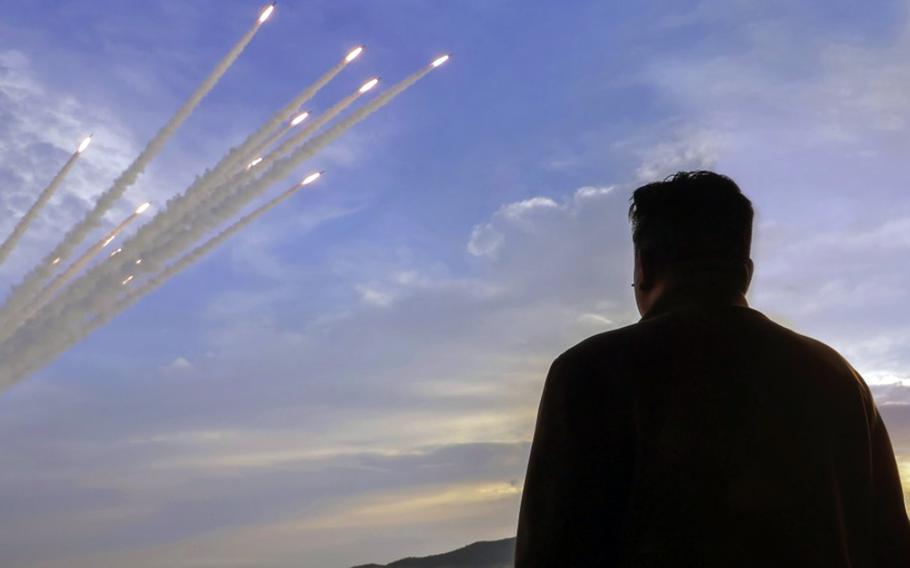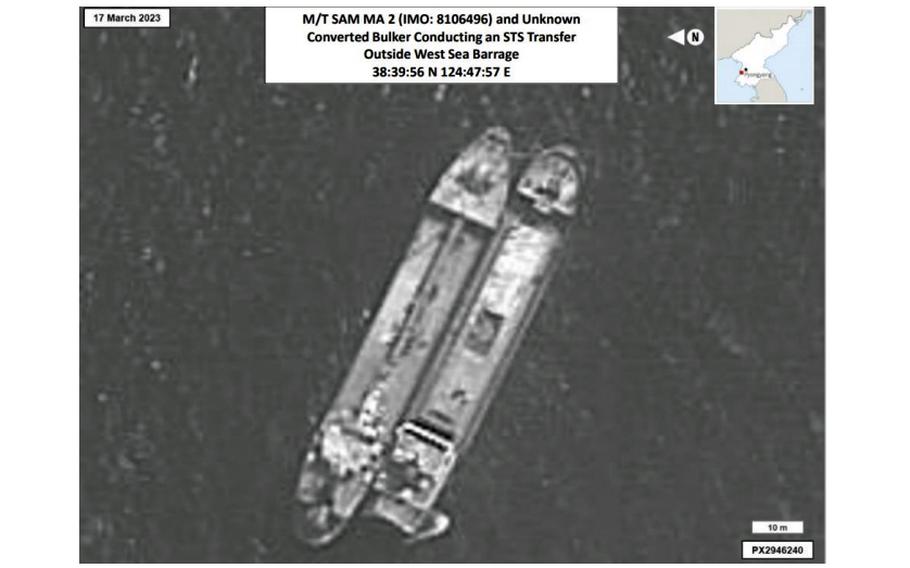
North Korean leader Kim Jong Un watches a multiple rocket launch from Pyongyang, May 30, 2024, in this image from the Korean Central News Agency. (KCNA)
A multinational watchdog, formed to monitor sanctions on North Korea after its U.N. predecessor disbanded last year, called for more countries to join the effort at its first meeting Thursday in Washington, D.C.
The Multilateral Sanctions Monitoring Team, with representatives from 11 countries, will continue monitoring the Security Council’s sanctions against North Korea through “rigorous inquiry,” according to a joint statement Friday.
The team is composed of officials from Australia, Canada, France, Germany, Italy, Japan, the Netherlands, New Zealand, South Korea, the United Kingdom and the United States.
The group urged other nations to join in addressing North Korean threats and to assist in stopping those who help the regime evade sanctions, according to the statement.
“The participating states of the [team] are aligned in our commitment to uphold international peace and security, safeguard the global nonproliferation regime, and address the threat arising from the [North Korea’s] weapons of mass destruction and ballistic missile programs,” the statement said.

A North Korean tanker carries out a suspected oil transfer with an unknown cargo ship in waters near the Korean Peninsula, March 17, 2023. (U.N. Security Council)
The group was created Oct. 16, seven months after Russia, an ally of North Korea and a permanent member of the U.N. Security Council, vetoed a move to renew the U.N.’s North Korea Panel of Experts.
China, another ally of North Korea, abstained from the vote.
Since 2009, the North Korea Panel of Experts advised the Security Council and provided intelligence on the efficacy of sanctions against Pyongyang.
In its final 615-page report submitted March 7, the panel said North Korea “continued to flout Security Council resolutions” by developing nuclear fissile material and used “a combination of obfuscation methods” to illegally smuggle oil in the country.
Moscow’s delegation to the Security Council defended its veto by saying the panel was used “to channel unfounded insinuations against the Russian Federation,” according to a U.N. news release after the March 28 vote.
Russia has long been accused by the U.S. and its allies of helping North Korea evade sanctions. Since last year, Washington and Seoul have accused Moscow of requisitioning North Korean troops to fight in its war against Ukraine, as well as accepting artillery shells and ballistic missiles from the communist regime.
The North Korea Panel of Experts was the “gold standard for fact-based, independent assessments” and Russia’s veto “was likely influenced by [the] publication of panel reporting on its procurement of military equipment and munitions from” North Korea, then-U.S. deputy secretary of state Kurt Campbell said during a news conference Oct. 16 in Seoul.
South Korea has imposed its own sanctions after the Security Council vote.
On July 19, South Korea’s Foreign Affairs Ministry sanctioned a Hong Kong-based shipping company, and a North Korean ship suspected of smuggling coal. The sanctions require the HK Yilin Shipping Co. to obtain approval when conducting business with South Korea.
The sanctions also label the Tok Song as a North Korean vessel that requires “special attention” from Seoul’s national security agencies, according to a ministry statement.